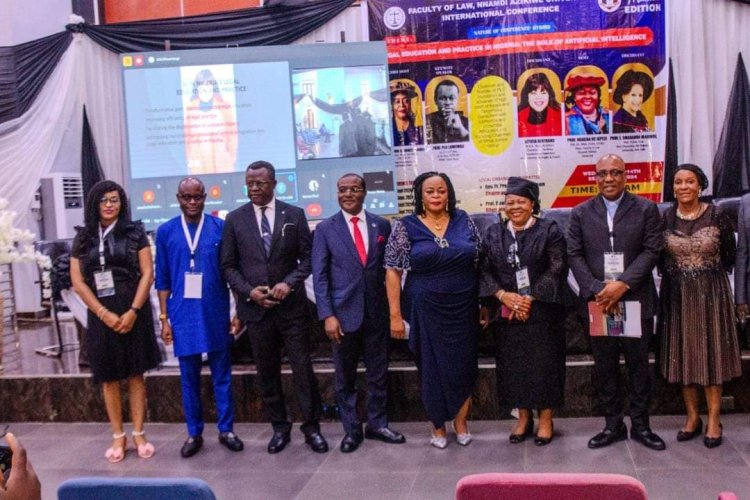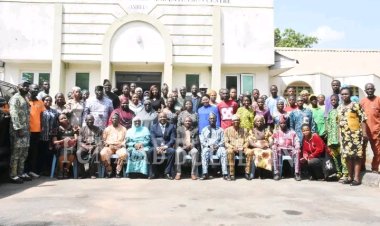Nnamdi Azikiwe University Faculty of Law Holds Maiden Hybrid International Conference
She pointed out the considerable challenges facing Nigeria's legal education system, including outdated technology in courtrooms and law offices, slow judicial processes, conflicting judgments, and insufficient research capabilities in case presentations and rulings.

The Acting Vice-Chancellor of Nnamdi Azikiwe University, Prof. Carol Arinze-Umobi, has lauded the Faculty of Law, under the leadership of Dean Prof. Ogugua Ikpeze, for successfully hosting its inaugural hybrid international conference.

In her address, Prof. Arinze-Umobi commended the conference's theme, "Legal Education and Practice in Nigeria: The Role of Artificial Intelligence," noting its relevance in light of technological advancements following the Fourth Industrial Revolution. She pointed out the considerable challenges facing Nigeria's legal education system, including outdated technology in courtrooms and law offices, slow judicial processes, conflicting judgments, and insufficient research capabilities in case presentations and rulings.
Dean Ikpeze emphasized that the conference served as an invaluable platform for legal professionals to connect with industry experts, discuss innovations in legal technology, and explore the integration of artificial intelligence (AI) into legal practice, all while upholding ethical standards and a human-centered approach.
Renowned legal scholar Prof. PLO Lumumba delivered a virtual keynote address, highlighting significant challenges within the legal profession, such as poor infrastructure, limited access to electricity and broadband, especially in rural areas, and a lack of digital literacy among legal practitioners.
Prof. Lumumba stressed that merely holding a Ph.D. is insufficient in today’s landscape; instead, embracing technology is vital. He noted that AI-powered tools, including legal chatbots, can provide essential legal advice to individuals who cannot afford traditional legal services, thereby democratizing access to justice. However, he cautioned about the need for comprehensive legislation to regulate AI in the legal sector to address issues of data privacy and protection effectively.





